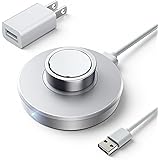What Happens If You Drink Clove Tea Everyday? The Surprising Results Are In!
Ever wonder what happens if you drink clove tea everyday? I’ve been sipping on this cozy infusion for years, and what I’ve uncovered will have you itching to steep a brew for yourself.
While we know cloves are calming, their ability to quietly boost wellness from within is what’s intriguing. So let’s go a little deeper and discover just how this spice might work its wonders over time.
Contents
- 1 What is Clove Tea
- 2 History Of Cloves
- 3 Bone Health And Clove Tea
- 4 Benefits of clove tea everyday for weight loss
- 5 What happens if you drink clove tea everyday for constipation?
- 6 Clove water and fertility
- 7 Does clove tea make you sleepy?
- 8 Can i drink clove tea at night:
- 9 Cloves For Headaches
- 10 Clove Tea For Parasites
- 11 Potential Side Effects of Cloves
What is Clove Tea
Essentially, clove tea is a simple infusion made by steeping cloves in hot water much like any other tea. Only instead of using leaves, it’s a whole dried clove buds.
People do this to extract the powerful oils and compounds from the clove without having to eat the bud itself (which can be a little hard on the ole chompers).
All you do is strain out the cloves and voila – instant-flavored clove tea with all those benefits in liquid form. Some like to sweeten it up with honey too for an extra tasty treat. You can find our personal clove tea recipe below
Clove Tea Recipe
Ingredients:
2 cups of water
4-5 cloves
1/2 inch ginger
1/2 inch cinnamon stick
Optional: honey, Muscovado, or Panela for sweetness
A squeeze of lemon juice
Instructions:
Boil the water.
Add cloves, ginger, and cinnamon.
Simmer for about 10 minutes.
Strain the tea.
Add sweetener (if desired) and lemon juice.
Enjoy your soothing clove tea!
History Of Cloves

The clove tea’s story begins thousands of years ago in the Spice Islands of Indonesia. It’s this place that’s the home of Syzygium aromaticum, better known as the clove tree. Indigenous to this area, cloves were cultivated and their healing qualities were discovered long before written records.
As early clove farmers experimented with preparation methods, they struck culinary and medicinal gold – infusing cloves in hot water. Thus clove tea was born on the tropical Moluccan islands, where it became deeply woven into Malay culture and cuisine.
Bone Health And Clove Tea
Did you know cloves can even benefit bone health? Compounds like eugenol and beta-caryophyllenes found in these spicy buds may stop bone loss. This is due to their anti-inflammatory effects that help protect bone cells.
A couple studies found that giving clove extract to rats with osteoporosis helped improve some of their bone health markers.
Of course more research is still needed, but it makes sense that cloves could strengthen and protect bone health considering their antioxidant content.
Benefits of clove tea everyday for weight loss

Cloves can also give our metabolism a little extra zip. It’s one of the few foods that activate brown fat. This is the brown adipose tissue (as the scientists call it), that burns calories and generates heat. The more active brown fat you have, the more energy you burn, and the leaner you’ll be.
It’s the compound called eugenol that research shows may stimulate those brown fat cells, flipping the “on” switch so to speak. One study found eugenol boosted people’s overall calorie-burning and metabolic rates.
What happens if you drink clove tea everyday for constipation?
Glad you asked. Well, we all have occasions when we feel backed up. Next time, before you reach for the laxatives, give clove tea a try. In fact, drinking clove tea every day could stop those occasional bouts of constipation from occurring in the first place.
Cloves are amazing gut soothers. The carminative compounds relax your whole digestive tract and get things flowing smoothly again.
They also help balance your gut flora which is crucial for regularity. Keeping things in harmony down there is key to gut health. Plus cloves have powerful anti-inflammatory properties that can soothe any irritation that might develop.
Clove water and fertility

While science is still seeking definitive proof, cloves’ anti-inflammatory compounds may lend a helping hand in fertility for women. Anecdotally, cloves were used in folk traditions as an aid for conception.
So how does this work? Well, chronic inflammation has been linked to fertility issues like endometriosis in women. Cloves’ ability to calm inflammation may support an internal environment conducive to conception and healthy implantation.
In addition, cloves seriously relieve oxidative stress (something that can take a toll on reproductive cells). Cloves deploy an arsenal of antioxidants that neutralize free radicals. This protects against cellular wear and tear.
So while more research is needed, it’s plausible cloves’ soothing, antioxidant-rich nature makes them low-key lifestyle Allie for fertility.
Does clove tea make you sleepy?
Clove tea indeed has some relaxing effects, whether it makes you sleepy depends on the person.
For some, the aromatherapy benefits and slight rise in body temperature from cloves’ warming properties can help induce feelings of calm and relaxation. The compounds eugenol and acetyl eugenol are thought to be mainly responsible for this.
However, clove tea is generally quite a mild relaxant. I wouldn’t necessarily count on it knocking me out for a full night’s sleep! Some people find the flavonoids and antioxidants in cloves perk them up a bit. We all react differently based on our unique biochemistry and lifestyle factors too.
Can i drink clove tea at night:

We all know getting quality Zzz’s is important for health and happiness, right?
The anti-inflammatory and antioxidant goodness eases stress and tension throughout the body. Here’s the sweet part – unlike coffee or soda, clove tea won’t jack you up with caffeine keeping you awake for hours.
As mentioned before, it won’t send you to sleep, it will relax and support sleep rather than work against it.
And get this – cloves’ soothing powers don’t just relax you. The warm brew may help relieve all kinds of aches and pains too. If you’ve got headaches, menstrual cramps, sore muscles, or even a toothache, clove tea can certainly help.
Cloves For Headaches
Apparently, the aroma alone has been shown to help reduce headache pain. Those yummy essential oils get inhaled into the nose and hit the olfactory bulb, which connects to pain-modulating areas of the brain. Just breathing in that warm, spicy scent starts to work its magic.
Drinking clove tea may also help by getting those active components into the bloodstream. Antioxidants can tamper inflammation which often is linked to headaches. It’s been shown that eugenol can work in a similar way to ibuprofen.
Clove Tea For Parasites
Did you know 10-20% (as suggested by studies) of Americans have parasites? Contrary to popular belief, parasite infections are far more widespread in the Western world than people think.
However, if you’ve got an unwelcome guest brewing in your gut, cloves could be a massive help. It has potent antiseptic and antibacterial properties thanks to compounds like eugenol and caryophyllene.
Research shows cloves can destroy all sorts of nasty pathogens that like to take up residence in our insides. Things like bacteria, fungi, even pinworms. Best of all it’s safe to use regularly.
Potential Side Effects of Cloves
While we’ve been talking about all the great things clove tea can do, it’s only fair to mention some potential side effects too. Nothing’s perfect, after all, so as with any herbal remedy it pays to approach cautiously.
First off, know that cloves in large quantities may cause headaches or gastrointestinal upset in folks who are extra sensitive. Starting slowly with just a cup or two a day is usually best till you know how your tummy reacts.
Cloves are what are traditionally known as galactagogue, simply put they can increase milk production in nursing mothers. This is due to the way eugenol can stimulate the let-down reflex. So nursing individual may want to consult their midwife or OB before daily consumption.
Additionally, cloves are sometimes called a “woman’s spice” because eugenol is thought to mildly stimulate the uterus. While fine for many, those with a history of preterm labor or other pregnancy complications would be wise to check with their provider.
Overall though, a cup of clove tea is generally well tolerated. I just wanted to properly note its ability to stimulate certain hormone and gastrointestinal responses as well. Discretion and moderation are key – listen to your unique bod’s feedback. Great catch to have me clarify!










